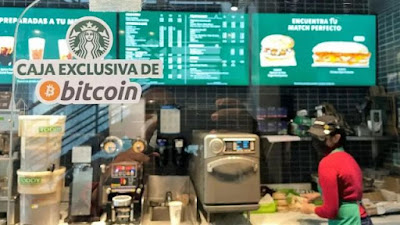A few days ago, President Nayib Bukele of El Salvador announced the latest achievements of the "Bitcoin Experiment" on Twitter: 1.1 million Salvadorans are using Chivo e-wallets!
If you remember, Bitcoin is now legal tender in this small, poor and turbulent Central American country with a population of only 6.5 million.
From the high-risk hype "virtual gold" to the spread of payments across the country, things have not been smooth sailing. In the past two weeks, El Salvador has been in a frenzy due to the collapse of the official app, with a frantic influx of one-star negative reviews; the people are confused and distrustful, and opposition crowds took to the streets to protest, and even violently smashed and burnt Bitcoin ATMs.There are reports describing the Bitcoin experiment in El Salvador as "a farce"!
Compared with the rise and fall of Bitcoin, what is even more maddening is:
On September 7, Bitcoin officially became the legal tender of El Salvador along with the U.S. dollar. In order to encourage use, the Salvadoran government launched an e-wallet App "Chivo", and distributed $30 worth of bitcoin to each user (can only be used but not withdrawn).
According to the official propaganda, you can freely choose to use US dollars or Bitcoin when paying, easily scan the QR code to pay, transfer money to the account quickly, no handling fees, and you can switch between the two legal currencies at any time. In addition, the government has deployed 200 Bitcoin ATMs and 51 service centers with staff throughout the country.
On the same day, Starbucks, Pizza Hut and other companies in El Salvador announced that they would accept Bitcoin as payment. President Bukele's Twitter has been rotating related news, and it seems that he is more excited than he himself. The government of El Salvador has bought 550 bitcoins at a cost of about 28 million U.S. dollars.
And the Bitcoin market on this day also "lived up to expectations", and indeed there was a wave of diving, and it even plummeted by 10,000 US dollars within 3 minutes. People saw that the 30 US dollars in the Chivo e-wallet had not been warmed up, and instantly shrank to less than 25 US dollars, which was a good lesson by the society.
If you guessed it right, El Salvador's 550 bitcoins have not paid back
Unexpectedly, it was the Chivo e-wallet itself that collapsed earlier than the residents of El Salvador.
According to reports, in the early morning of September 7th, Chivo started to fail just three hours after its release. After the emergency expansion of the server, transactions were still not possible. The customer service hotline was waiting forever, and Chivo's ATM machines were also short of cash.
The App Store and other app stores have crazily flooded with one-star bad reviews. In addition to dissatisfaction, users only have anger, and more technical problems that cannot use Chivo normally have surfaced:
· After 5 hours, the interface is still blank and there is nothing.
· It can be opened normally for the first time, and then can not be entered again.
· Unable to enter the account, the transaction information cannot be loaded
· I just entered my ID card and said it has been registered. What is going on? !
To register for a Chivo account and get $30 in Bitcoin, you must be a Salvadoran citizen, and you must also provide a photo on your ID card, a photo of yourself, your ID number and date of birth.
But soon someone discovered that their identity information had been stolen and registered because Chivo did not seem to verify the identity of the photo and the real person, only the ID number and date of birth were checked. In addition, some residents who did not install Chivo received SMS verification codes. The problem of identity theft immediately caused concerns about criminal money laundering.
In the next few days, President Bukele lived like Chivo's national customer service representative on Twitter. He will tell everyone that the technicians are rushing to fix it, he will call for bugs, and he will slap his chest saying that Chivo’s technical problems have almost been solved. To solve the problem, the ATM machine is also operating normally, and I urge everyone to experience and use it quickly.
We set ourselves a goal to launch a product in 3 months. This challenge is too difficult. We made mistakes, but we are correcting them. Soon, thousands of Salvadorans can use their Chivo wallets and enjoy convenience.
Despite this, there are currently 65% of mobile phone models that cannot download and use Chivo e-wallets.
Bukele's Twitter and app store comment areas are still full of issues such as "load failure", "remind error after entering the verification code," "cannot add ID photo", "delayed transfer" and other issues. Even if you are looking forward to opening the App and want to try Pioneer's avant-garde payment method, you have to be dissuaded by reality.








No comments:
Post a Comment